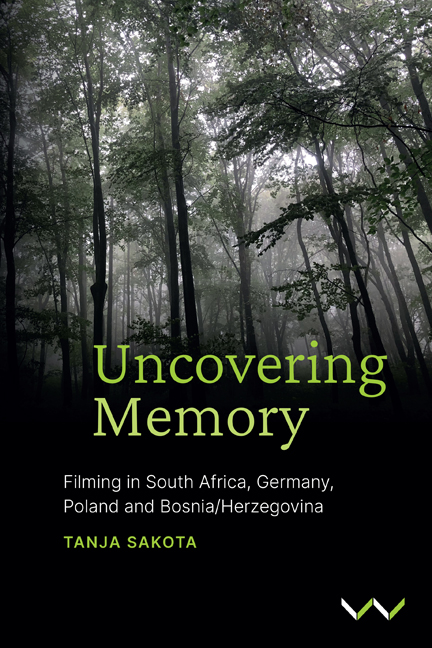Book contents
- Frontmatter
- Dedication
- Contents
- List of Images
- Foreword
- Acknowledgements
- Map of Africa and Europe
- Practice-Based Research, Teaching and Learning
- Part I Working With Students: Cape Town, Johannesburg, Berlin
- Part II Working With Peers: Constitution Hill, Johannesburg
- Part III Working With Myself: Poland, Germany, Bosnia/Herzegovina, South Africa
- Moving Forward
- Film Credits
- Glossary of Terms
- Notes
- Bibliography
- Index
Chapter 17 - Autoethnography and remembering through the self
Published online by Cambridge University Press: 24 November 2023
- Frontmatter
- Dedication
- Contents
- List of Images
- Foreword
- Acknowledgements
- Map of Africa and Europe
- Practice-Based Research, Teaching and Learning
- Part I Working With Students: Cape Town, Johannesburg, Berlin
- Part II Working With Peers: Constitution Hill, Johannesburg
- Part III Working With Myself: Poland, Germany, Bosnia/Herzegovina, South Africa
- Moving Forward
- Film Credits
- Glossary of Terms
- Notes
- Bibliography
- Index
Summary
Helena and Karl are in their apartment. There is a knock at the door. Helena opens it cautiously, wondering who would knock when the gunfire is so close. It's one of the other tenants. ‘Wir mussen sofort gehen!’ (We have to leave immediately!) It is getting too dangerous to stay at number 40 Bergstraße. Helena looks at her husband, he is weak and frail. How is she going to get him across to Posnerstraße? Her daughter-in-law may be there, it may be safer. The Soviets are already in the city and they are emptying the buildings, ordering people to pack their things and leave within 45 minutes. They are a ruthless enemy, there are already rumours of mass rape and carnage. Helena packs a few belongings and supports her frail husband as they slowly descend the staircase.
They hear the sounds of artillery in the background. It is dark, people are moving up and down the stairs, calm, but with fear in their eyes. They are holding suitcases and bags filled with a few belongings, they hold onto anyone who will assist them with the looming exodus. It is too dangerous to stay, everyone young and old must leave. Two women help Helena and Karl down the stairs. They thank them, grateful for their kindness. Slowly Helena helps the weak and fragile Karl down the street. They walk quietly, stopping every few steps to catch their breath, slowly manoeuvring their way towards the outskirts of the city. The sounds of war can be heard in the distance. It takes them the entire day to walk a few blocks. Finally, they make their way across a park. It is a beautiful park with tall trees along the oval pathway. For a moment they forget about the raging war beyond the trees. It is spring and the buds are bursting to open, young, innocent and free, oblivious to the destruction all around. As the two trudge forward Helena sees her son's apartment block just on the other side. Karl is a small man and despite his frail state, Helena can only support him by holding his arm over her shoulder. Karl has always been the soft, gentle and kind one. Helena is a small woman but her appearance is deceptive.
- Type
- Chapter
- Information
- Uncovering MemoryFilming in South Africa, Germany, Poland and Bosnia/Herzegovina, pp. 227 - 238Publisher: Wits University PressPrint publication year: 2023



